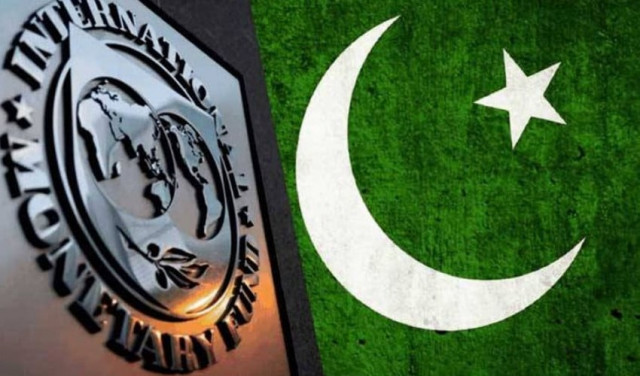Pakistan sees 2nd IMF anti-graft visit
Mission to engage with over 30 departments including probing sugar sector

The International Monetary Fund (IMF) has sent a second Corruption and Governance Diagnostic Mission to Pakistan a few months apart to hold in-depth engagements with over 30 departments and institutions, including the registrars of the Supreme Court of Pakistan (SCP) and the accountability court.
The mission, which began its interactions on Thursday, will stay in the country until April 14, according to Pakistani authorities. The IMF's response on launching the second corruption and governance diagnostic mission since February was awaited until the filing of this story.
Price controls, particularly practices in the sugar industry and construction sectors, are also part of the mission's engagements, sources added.
So far, the mission has held meetings with the State Bank of Pakistan (SBP) in Karachi, discussing banking sector regulations, suspicious transactions, and money laundering issues, according to central bank authorities.
This is the second mission the IMF has sent to Pakistan since February, aimed at finalising a report and a set of recommendations to improve the country's governance structure and address corruption and money laundering issues. In February, the mission also met with Chief Justice of Pakistan Justice Yahya Afridi to discuss judicial appointments and other legal matters.
Sources said the IMF mission will this time meet with the registrar of the SCP to discuss judicial efficiency and accountability of judges. A separate meeting has also been scheduled with the registrar of the accountability court in Islamabad to discuss the operations of these special courts, they added. The IMF delegation will also meet with officials from the Ministry of Law and Justice. The law minister's response regarding meetings with the registrars of the Supreme Court and the accountability court was awaited until the filing of this story.
During its 12-day stay in Pakistan, the IMF has planned meetings with at least 30 government departments and institutions. It will also meet with the anti-corruption authorities of Punjab, Sindh, and Khyber-Pakhtunkhwa (K-P).
Some meetings appear beyond the typical scope of a governance and anti-corruption mission. The mission will discuss amendments to the Pakistan Sovereign Wealth Act, which was part of the last IMF programme review mission, sources said. The IMF has also included issues related to budget execution, treasury single accounts, and debt management in a mission that mostly deals with legal matters within the IMF.
Treasury single accounts, the number of bank accounts held by ministries, cash forecasting, and coordination with debt management are part of the IMF's agenda.
The Ministry of Finance spokesperson, Qumar Abbasi, had yet to respond regarding the inclusion of topics related to the regular programme review in the anti-corruption mission's agenda at the time of filing this story.
Sources said the Fund will also meet with the Ministry of National Food Security to discuss issues related to the sugar sector, including price controls. Over time, government policies have favoured sugar mills at the expense of consumers and the free market.
The IMF will also meet with the Pakistan Sugar Mills Association (PSMA), which has been under investigation by the Competition Commission of Pakistan (CCP) and has been fined billions of rupees for price manipulation and cartelisation.
Last month, the CCP stated that fines and penalties worth Rs44 billion had been imposed on the PSMA and several sugar mills on these charges, but the courts have granted stay orders. The IMF will seek an update from the CCP on the adjudication process and the referral of anti-competition cases to higher courts.
The mission will also discuss issues related to financial sector oversight by the central bank, anti-money laundering, and combating the financing of terrorism. Matters concerning supervisors' integrity, conflicts of interest, and legal protection for financial regulators are also on the agenda, sources said.
The Fund will examine the process of issuing licenses to commercial banks and the criteria for assessing the suitability of banks' board members and senior management.
Additionally, the IMF will meet with the Federal Investigation Agency (FIA) to discuss its anti-corruption investigations and operations. It will also engage with the National Accountability Bureau (NAB) to review its corruption risk assessment and discuss priority reform areas, money laundering investigations, and prosecution efforts.
Procurement-related fraud and corruption prevention in the SBP and the banking sector will also be discussed with NAB. A separate meeting is scheduled with the Financial Monitoring Unit.
The Right to Access to Information is another topic on the IMF's agenda, an area where implementation remains weak due to government departments' reluctance to share information with taxpayers. The IMF will prepare a report, which Pakistan is required to publish by the end of July or August.




















COMMENTS
Comments are moderated and generally will be posted if they are on-topic and not abusive.
For more information, please see our Comments FAQ